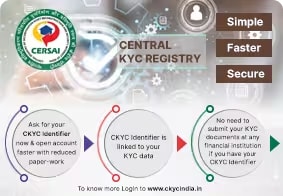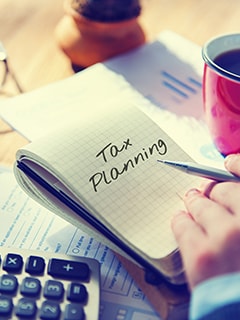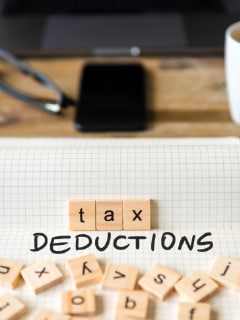Enjoy Zero Charges on All Commonly Used Savings Account Services
- About Us
- MD & CEO letter about the bank
- MD & CEO
- Our History
- Letter to Shareholders on the 1st Annual Report after Merger
- Letter to Shareholders on the 2nd Annual Report after Merger
- Letter to Shareholders on the 3rd Annual Report after Merger
- Letter to Shareholders on the 4th Annual Report after Merger
- Board of Directors
- Awards & Accolades
- News Room
- Investors
- Careers
- ESG
-
Customer care hotlineCall 1800 10 888
-
As per amendment in the Income Tax Rules, PAN or Aadhaar are to be mandatorily quoted for cash deposit or withdrawal aggregating to Rupees twenty lakhs or more in a FY. Please update your PAN or Aadhaar. Kindly reach out to the Bank’s contact center on 1800 10 888 or visit the nearest IDFC FIRST Bank branch for further queries.
-
-
FinFIRST Blogs
Finance
Smart tax planning for young earners: Navigating finances in your twenties
Summary: There is no minimum age for tax planning for those who have started living on their own income. The sooner you start, the easier it is to learn the basics and take control of your finances. Check out some smart steps to save taxes and plan for your life goals for a better future. Read on.
Got your first job or started earning?
Congratulations! You have just started your journey towards becoming financially independent and responsible. While you are now capable of taking care of your own needs and wants, have you started your tax planning journey?
READ MORE
What is tax planning?
To understand tax planning, let’s first give you some context.
According to the Income Tax Act of 1961, an individual who earns an income in a financial year is liable to pay tax on the said income if the income exceeds a specified limit. Simply put, you might have to pay tax on your earnings if you earn.
Since the tax paid eats into the annual income, taxpayers try to reduce their tax liability. This is where tax planning comes into the picture.
Tax planning is an activity wherein you analyse your income and then take steps to ensure that you pay the lowest possible tax on it. Tax planning involves utilising eligible expenses and investments to reduce taxable income. As the taxable income reduces, so does the tax liability.
Also read - Online tax payments with Credit Cards - how do they work?
Why should you plan your taxes?
Here are some reasons that highlight the importance of tax planning –
To lower your tax liability
Lowering the tax outgo is one of the most important reasons for tax planning. With thorough planning, you can identify the eligible expenses and investments that give tax benefits. You can, then, use the available tax-saving provisions listed in the Income Tax Act to lower your tax liability.
For instance, Section 80C of the Income Tax Act allows you to claim a deduction of up to Rs 1.5 lakhs for eligible investments and expenses. Common examples include 5-year fixed deposits, tuition fees for children, home loan principal repayment, Equity Linked Saving Scheme (ELSS), Public Provident Fund (PPF), etc. With the help of tax planning, you can utilise this deduction and reduce your tax liability by up to Rs 45,000 (if you are in the 30% tax bracket).
To save and invest more
By identifying tax-saving investment avenues, you can further save money by investing in them to create a corpus for your financial goals. This also increases your savings.
To avoid penalties
Paying income tax is your federal duty, and if you avoid it or evade tax, you attract penalties and even imprisonment in severe cases. By paying the tax due, you can avoid these penalties and become a responsible Indian citizen.
Smart tax planning moves for young earners
Taxes are a little technical. You might find yourself wondering how and where to start. To make your job easier, here are some smart tax planning moves to get started –
Plan, even if you don’t have to
As mentioned, you must pay tax only if your taxable income exceeds a specified limit. But what if it doesn’t?
As a young earner, your annual income might be below the threshold limit of the income tax slab rate (Rs 2.5 lakhs in the old tax regime and Rs 3 lakh in the new one). If so, you don’t need to file your income tax returns. However, you should. Let’s understand why -
- For starters, if TDS was deducted from your income, you must file your tax return to claim its refund since you have zero tax liability
- Secondly, filing your ITR creates a paper trail. You get income proof, which is important when looking for a loan or a credit card
- Thirdly, you can learn the basics of tax planning so that when your income increases in the future, you can use what you learn to minimise tax liability
Invest per your goals
When looking for tax-saving investment avenues, don’t forget your goals. Always invest according to your goals to have the corpus needed to fulfil them. For instance, if you want to buy a car in the next three years, you must save in short-term investment avenues, like an ELSS scheme. Choosing a PPF scheme would be unwise since it has an investment horizon of 15 years, which defeats the purpose.
When you start tax planning, identify and list your goals in ascending order. Then, explore investment avenues that align with your goals and invest accordingly.
Stay ahead
Don’t leave tax planning till the last possible minute. It creates an unnecessary last-minute rush, which might lead to mistakes and rushed investments. Start the process as the financial year starts. You will have the whole year to find and invest in tax-saving avenues that match your goals.
Don’t miss the due date
Taxpayers must file their returns within a specified due date, usually 31 July. Do not miss the last date for filing your returns, hence the stress on starting early. Start preparing your returns in advance and check them once or twice to weed out any mistakes.
Take professional help
Planning and filing your returns require a little knowledge and technical expertise. Being new to the game, you might feel overwhelmed by technical jargon and rules. Simplify the process with the help of an expert. Consult professional tax consultants or take the help of your parents as you start your tax planning journey.
Special tips for first-time investors
As a first-time investor, be wary of the following –
- Investment risk in the chosen avenue
- Tax on returns
- Changing income tax rules
Also read - How education loan can help you save tax
Tax planning with IDFC FIRST Bank
IDFC FIRST Bank offers many tax-saving investment options for your tax planning journey. Moreover, the rewarding savings accounts with interest up to 7% p.a. help you earn tax-deductible interest income under Section 80TTA.
Choose the right savings account for your needs, invest in tax-efficient instruments, and start your tax planning journey on the right note.
Disclaimer
The contents of this article/infographic/picture/video are meant solely for information purposes. The contents are generic in nature and for informational purposes only. It is not a substitute for specific advice in your own circumstances. The information is subject to updation, completion, revision, verification and amendment and the same may change materially. The information is not intended for distribution or use by any person in any jurisdiction where such distribution or use would be contrary to law or regulation or would subject IDFC FIRST Bank or its affiliates to any licensing or registration requirements. IDFC FIRST Bank shall not be responsible for any direct/indirect loss or liability incurred by the reader for taking any financial decisions based on the contents and information mentioned. Please consult your financial advisor before making any financial decision.
The features, benefits and offers mentioned in the article are applicable as on the day of publication of this blog and is subject to change without notice. The contents herein are also subject to other product specific terms and conditions and any third party terms and conditions, as applicable. Please refer our website www.idfcfirstbank.com for latest updates.


 What's special about us
What's special about us




















